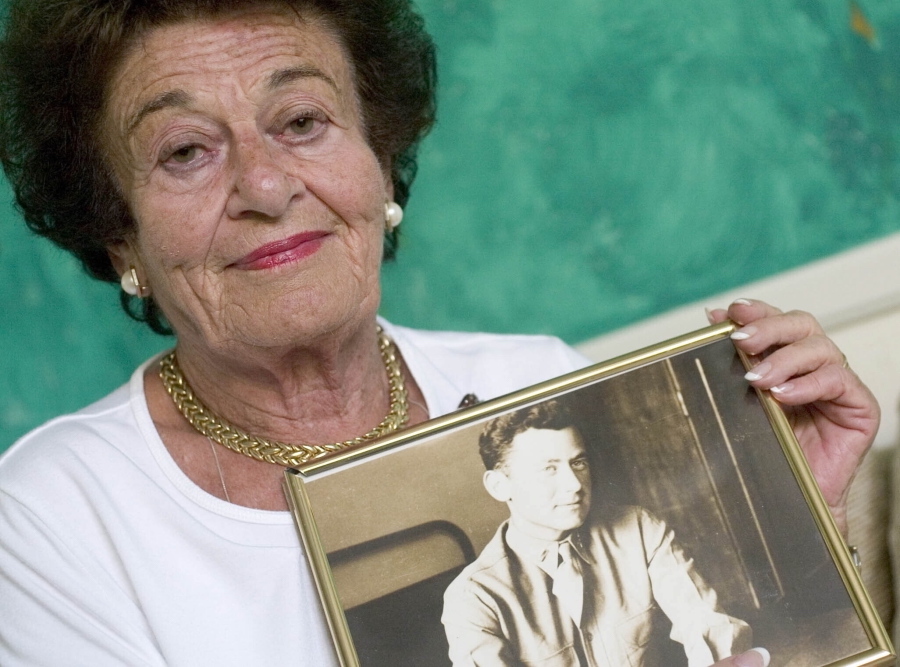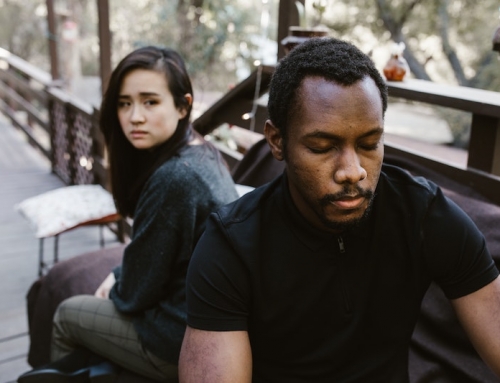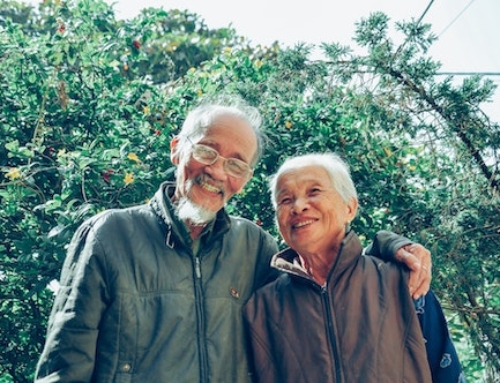Marriage therapy Remembering Gerda Weissmann Klein
April 28 is remembrance day for Jews around the world. Gerda Weissmann Klein (May 8, 1924 – April 3, 2022) was a Polish-born American writer and human rights activist who came to America after surviving the halocaust. She made tolerance and kindness her life’s work. In Judaism it is an honor to remember those people who have made a difference in people’s lives. Gerda Weissmann Klein is one of those kinds of people.
Gerda was 15 when the Nazis invaded poland in 1939.
In June of 1942 the ghetto was liquidated by the Nazis, and Gerda’s father was sent to a death camp where he was killed in April of that year. In June of ‘42 she was separated from her mother. She suffered at the hands of the Nazi death machine for three years, including a forced march ahead of the liberators where many of the women died, including her dear friends. In the end, she was the only person in her family that survived the war
In May 1945, Weissmann was liberated by forces of the United States Army in Volary, Czechoslovakia; these forces included her future husband, Lieutenant Kurt Klein,who was born in Germany and had immigrated to the United States to escape Nazism as a teenager in 1937. Klein’s parents died at the Auschwitz concentration camp.
When Kurt Klein first encountered Gerda Weissmann, who was one day short of her 21st birthday, she was white-haired, weighed 68 pounds, dressed in rags, and had not bathed in three years. When she informed Klein that she was a Jew, he told her he was Jewish, as well. They were engaged in September 1945 and married in Paris.
After the war the pair went to America and lived in Buffalo NY where Gerda wrote for the Buffalo News.They moved to AZ in the mid ‘80s to be nearer their family, where Gerda passed away on April 3, 2022.
Her Memoir All But My Life tells the harrowing story of what Gerda experienced in the Nazi death camps. It was adapted for the screen as One Survivor Remembers in 1994. The film won the Oscar for Best Documentary (short subject) 1995, an Emmy Award, and was selected for the National Film Registry . When you think about this sometimes it may feel insigniicant to some of the things that may bring you into marriage therapy.
It’s amazing to think that two people who had been through and seen so much loss and suffering in their lives could focus on love, teach tolerance, bring communities together and promote caring and kindness, but that’s exactly what they did.
Of the 16 million men and women who went to war, today there are about 240,000 still alive, most in their 90s or over 100 years of age.
The approximate number of Jews murdered in the holocaust is 6 Million, and the number of survivors is somewhere around 400,000. These elders are passing away at a rapid rate due to age. Last year alone 15,000 passed away in Israel. There will soon be a time when there will be no one left to share their experiences and tell the story of this horrific and terrible time in world history.
If you have a family member who survived the war, or the camps, I urge you to mark the observances with them, either the Jewish religious observances, Holocaust Remembrance Day or simply to study and discuss WWII and to pass on the stories you’ve learned to your families.
I think almost everyone is familiar with this common proverb. “Those who ignore history are doomed to repeat it.”. The original saying was by George Santayana and is actually: “Those who cannot remember the past are condemned to repeat it.” Judaism teaches the importance of remembering. Jewish history and passing it down through ceremonies and observances to the next generation. This is also true in marriage therapy not forgetting about the things in our past but healing from it. But the Klein’s made it through all of this trauma don’t forget about this.
With all the turmoil in the world, we can be an example of love to our fellow men. It begins with each individual, couple and family. We are not condemned to repeat history if we break the patterns now in our life and in the lives of our children. We begin by teaching and modeling tolerance, kindness, love and service to our fellow citizens. In this way, we move forward to a brighter and more positive future.
What does that look like in your home? Do you and your partner discuss history, the world and the way it’s changed/ changing? Do you have difficult conversations about your own prejudices and the way you were taught or grew up to feel about certain groups or races? Do you even admit that you have biases? Marriage therapy can help you talk about all of the important things for the two of you
Judaism teaches that the Jews are a special, chosen people, and that’s the reason Jewish people have been persecuted throughout history. Jewish people know what it’s like to be singled out and marked by society. Has that affected your family? In spite of , or because of that, do you model an example of tolerance, kindness, and inclusion for your children? Marriage therapy is just one tool to help you as a couple work together.
Do you teach tolerance to your children and discuss biases and bullying? Do you talk about the differences in families, what it means to be inter-racial, inter-faith or living in unconventional family situations such as a friend that has two moms or two dads?
Intolerance is not born in us, it’s taught. It can be unlearned by every small act of kindness and care that you put out into the world and in every lesson you teach the next generation about inclusion, service and love for our fellow humans.
Whether you practice Judaism or not, you can still learn from the experiences of people like Gerda Weissmann Klein. Spend time with your partner, your children, and your loved ones to study world history and the holocaust through the lens of what the world looks like today. Have discussions about the events leading up to the holocaust, and observe the remembrances for those that were lost. Pass down the stories you know from your parents or grandparents to give the next generation a wider world view and to guard against history repeating.
Knowledge is power. It’s vital that the holocaust never be forgotten, and it’s up to us to keep the memories alive.







